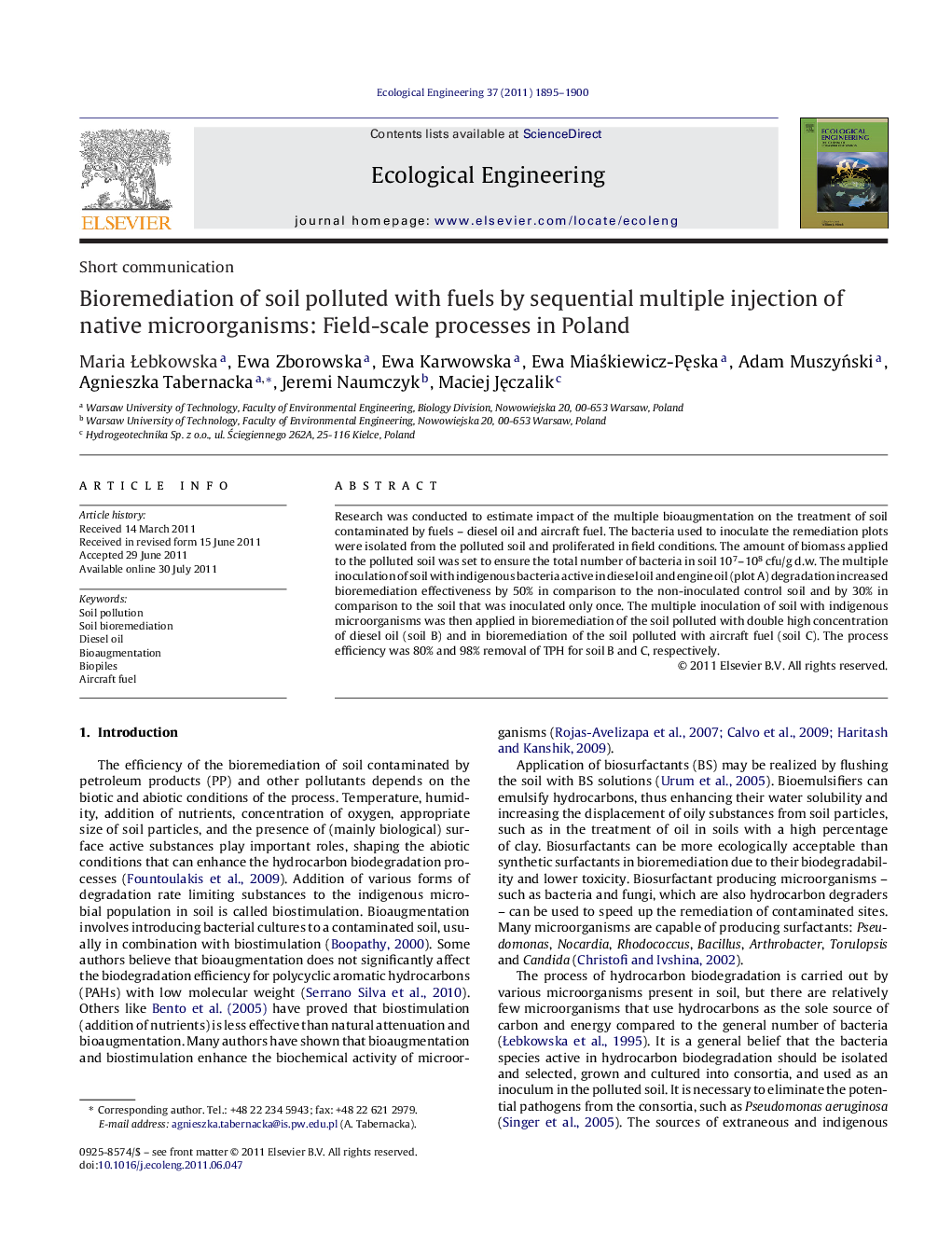| Article ID | Journal | Published Year | Pages | File Type |
|---|---|---|---|---|
| 4390142 | Ecological Engineering | 2011 | 6 Pages |
Research was conducted to estimate impact of the multiple bioaugmentation on the treatment of soil contaminated by fuels – diesel oil and aircraft fuel. The bacteria used to inoculate the remediation plots were isolated from the polluted soil and proliferated in field conditions. The amount of biomass applied to the polluted soil was set to ensure the total number of bacteria in soil 107–108 cfu/g d.w. The multiple inoculation of soil with indigenous bacteria active in diesel oil and engine oil (plot A) degradation increased bioremediation effectiveness by 50% in comparison to the non-inoculated control soil and by 30% in comparison to the soil that was inoculated only once. The multiple inoculation of soil with indigenous microorganisms was then applied in bioremediation of the soil polluted with double high concentration of diesel oil (soil B) and in bioremediation of the soil polluted with aircraft fuel (soil C). The process efficiency was 80% and 98% removal of TPH for soil B and C, respectively.
► Indigenous bacteria are used to treat soil polluted with diesel oil. ► Multiple bioaugmentation increases the remediation effectiveness by 50%. ► Method is applied to treat an aircraft fuel-polluted soil in field conditions.
